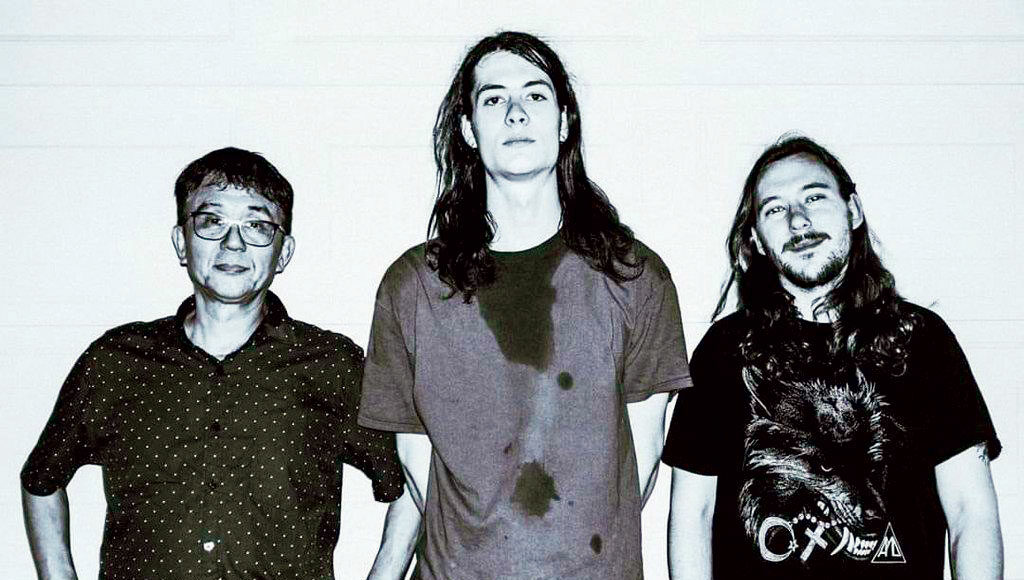At the outset of “Soldiers,” the title track from the second album by South Bay jazz trio Murray/Sato/Weeks, a single note appears like a figure on the horizon.
For 10 seconds, saxophonist Tom Weeks and bassist Kazuto Sato hold the note together, while drummer Kevin Murray makes a skittering wash of cymbals beneath—like rain against a window. Then, forty seconds in, sudden and unexpected, it is revealed that the note they have been holding is the first of “Taps,” the funeral signal of the U.S. military.
“I have my own views about the U.S. military—can’t say I’m a fan,” says saxophonist Tom Weeks, the song’s composer. “But I was thinking about how a lot of the biggest influences on my life have been people who, for one reason or another, ended up in the Army. Especially musicians.”
In addition to his own father, Weeks mentions a number of avant-gardists not typically associated with the military: Albert Ayler, Cecil Taylor and the mathematical Anthony Braxton. All of them jazz musicians who risked their lives for a country where they were treated like second-class citizens.
By the minute mark of “Soldiers,” Murray/Sato/Weeks have passed through “Taps” and fully launched into their twenty-minute epic, an exhilarating piece that blends improvisation and composition with frequent nods to the early days of free jazz.
On the album’s remaining three tracks (two free improvisations, one composition) the trio continue to flex their chops while charting some of the outer extremities of their instruments. A tendency towards the extreme is most noticeable in the sax playing of Weeks, who brings some decidedly non-canonical influences to the alto.
“I am very influenced by, and have operated in the realms of, heavy metal and hardcore,” he says.
Weeks also composes, in addition to performing. One composition on his website, written for wood flute and frame drum, is titled “Necromancy,” and is intended “to be performed in a cemetery at midnight.”
At the six minute mark of “Soldiers,” Weeks begins a stretch of percussive sounds on the sax, jumping in on the tail of a drum solo that, by that time, has begun to sound more like a man wandering in an unlit tool shed (long an important location for jazz musicians). The shed-sounds pick back on blazing second track, “The Sickness Unto Death,” on which Weeks sometimes sounds like he is playing a chainsaw more than a saxophone.
“That’s us in our real fire-breathing mode,” he says, “and the closest in relation to what we’ve done in the past.”
Recorded in Oakland in 2019 with Tiny Telephone engineer Adam Hirsch, Soldiers is a great sounding record. It’s warm, and present and captures the trio while they were dialed-in from playing together in between dates on a lengthy West Coast tour.
“After playing every night for three weeks, you start to get pretty sharp,” Weeks says. “You start to learn each other’s languages, and start to develop a group language.”
That group language is quite fluent on Soldiers, and the line between improvisation and composition often purposefully blurred. Traditionally, the trio perform single sets of wholly improvised work, usually around half an hour in length. Here, in addition to shorter lengths, half the tunes are compositions.
“That was a departure from what we’ve been doing,” Weeks says. “I was trying really hard to fit our natural, freely-improvised language into my own compositional structures. That required me to shape the composition into something that sounds sort of close to us improvising anyway.”
Third track “For Pierre Boulez,” named after the 20th century avant-garde composer, takes some of Boulez’s obscure compositional techniques and combines them with one used by pianist Cecil Taylor, creating what feels, at times, like a spontaneous skeleton willing itself into existence. Weeks cites Boulez as a major influence on the trio’s music—though not as major as another musician/soldier.
“I can’t think of a single musician who I’ve met who doesn’t have immense respect and love for Jimi Hendrix—and if I did, I would be very suspicious,” he says. “Outside of certain music labs making abstract stuff, he was one of the first to make electronic music, and certainly one of the first to do it in front of a large crowd of people.”
Murray/Sato/Weeks
Album: Soldiers
Price: Pay what you want
murraysatoweeks.bandcamp.com



